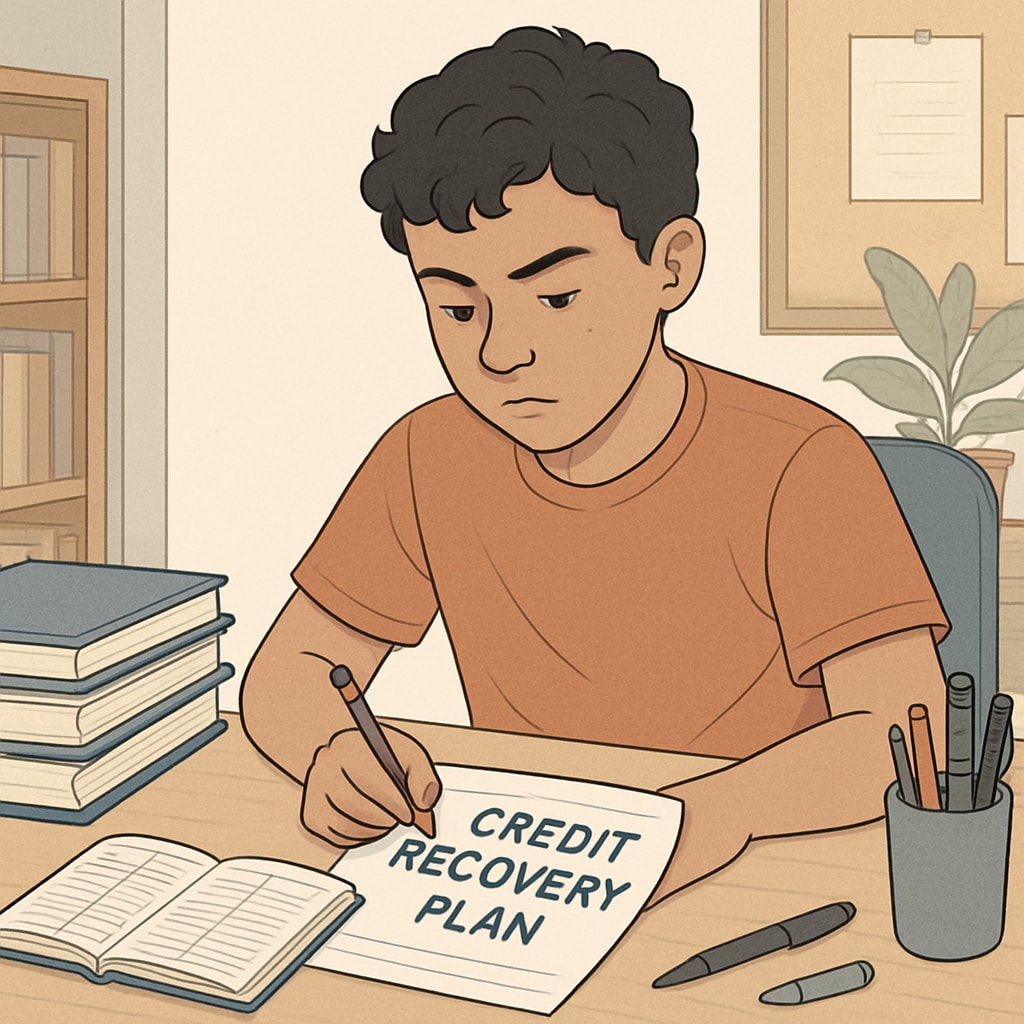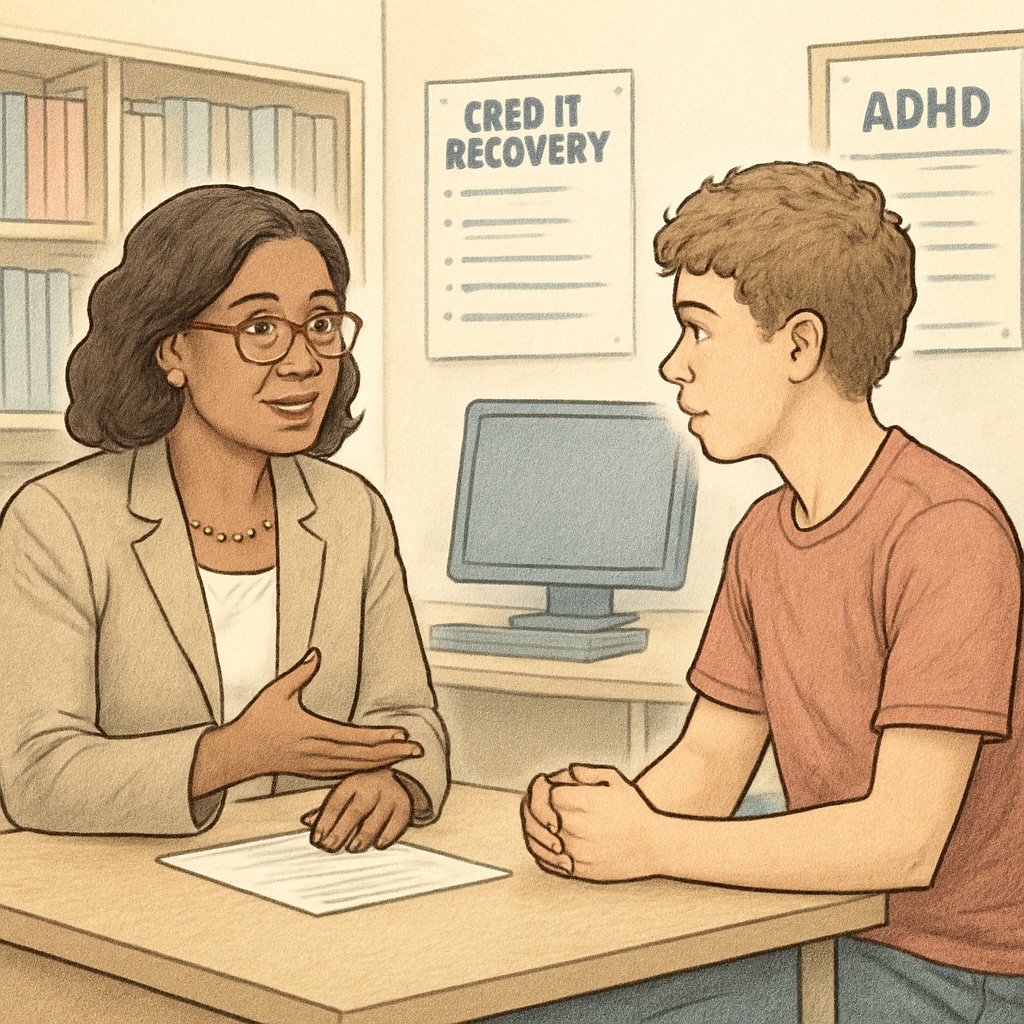High school credits, ADHD, and academic struggles often go hand in hand, creating significant challenges for students aiming to graduate on time. Whether you’re dealing with an ADHD diagnosis or simply struggling to keep up with coursework, falling behind on credits can feel overwhelming. The good news is that with the right approach, you can recover lost credits, manage your ADHD symptoms effectively, and get back on track for graduation.
Understanding Credit Deficiencies and ADHD Challenges
Falling short on high school credits happens for various reasons—missed assignments, incomplete courses, or even difficulties managing ADHD symptoms such as inattentiveness and impulsivity. ADHD (Attention Deficit Hyperactivity Disorder) affects executive functioning, which can make it harder to plan, prioritize, and complete tasks on time. As a result, many students with ADHD find themselves behind academically.
To start addressing these challenges, it’s essential to pinpoint the root causes of your credit deficiency. Are you struggling with specific subjects? Is time management an issue? By identifying these factors, you can tailor your strategy to fit your needs.

Steps to Recover High School Credits
Recovering high school credits requires a systematic approach and a willingness to seek help when needed. Below are key steps to help you catch up:
- Meet with a School Counselor: Schedule a meeting with your counselor to discuss your credit situation. They can provide insights into available options, such as summer school, online courses, or credit recovery programs.
- Explore Alternative Credit Options: Many schools offer flexible solutions like evening classes, online learning platforms, or independent study programs tailored for students who need to make up credits.
- Create a Personalized Learning Plan: Work with your counselor or teacher to develop a structured plan that outlines the courses you need to complete, deadlines, and milestones.
- Leverage ADHD-Friendly Tools: Use ADHD-friendly techniques such as timers, checklists, and apps like Trello or Todoist to stay organized and focused.
By breaking down these steps into manageable chunks, you’ll find it easier to work toward your graduation goals.

ADHD-Friendly Strategies for Academic Success
ADHD doesn’t have to be a barrier to success. With the right strategies, students with ADHD can excel academically and recover credits effectively. Here are a few techniques:
- Prioritize Small, Achievable Goals: Instead of focusing on the entire semester, break tasks into daily or weekly goals. Completing smaller objectives builds confidence.
- Use Visual Aids: Tools like calendars, charts, and visual organizers can help you track progress and stay motivated.
- Establish a Routine: Consistent routines reduce distractions and help you build habits that align with your academic goals.
- Incorporate Physical Activity: Exercise improves focus and reduces ADHD-related symptoms, making it easier to concentrate on schoolwork.
- Seek Accommodations: Request accommodations such as extended test times or reduced distractions in testing environments to optimize performance.
These strategies, combined with proactive communication with teachers and counselors, can make a significant difference in your academic journey.
Maintaining Momentum and Staying Motivated
Recovering lost credits is a marathon, not a sprint. Staying motivated is crucial, especially for ADHD students who may struggle with consistency. Here are tips to keep momentum:
- Celebrate Small Wins: Reward yourself after completing assignments or reaching milestones to maintain positive motivation.
- Build a Support System: Surround yourself with encouraging friends, family, and mentors who can help you stay accountable.
- Track Progress: Regularly review your credit recovery plan to ensure you’re meeting deadlines and staying on track.
- Practice Self-Care: Prioritize sleep, nutrition, and mental health to maintain the energy and focus needed for academic success.
As a result of implementing these strategies, you’ll find yourself equipped to tackle challenges and achieve your graduation goals.
Recovering high school credits while managing ADHD symptoms can be challenging, but it’s entirely possible with the right resources and mindset. By leveraging school support systems, adopting ADHD-friendly learning strategies, and maintaining motivation, you can overcome barriers, regain control of your academic path, and graduate on time. Start today, and take the first step toward a brighter future!


